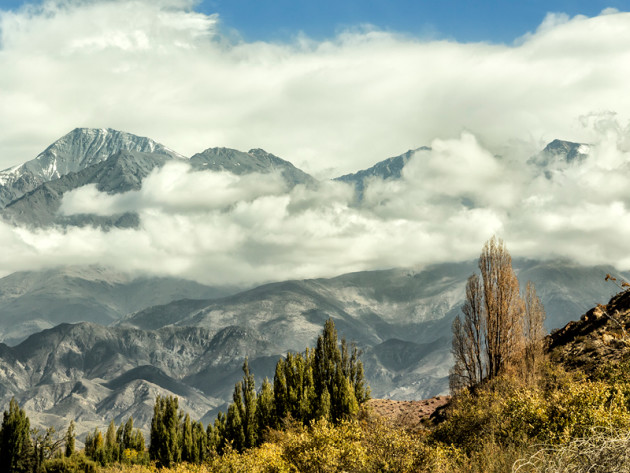
Talking up organic
Argentina is well placed to lead the charge in organic wines, with Malbec as an ever-popular ‘in’. Harpers talks to a couple of pioneers who are determined to make this happen
Our latest In My Vineyard interview, featuring Domaine Bousquet’s chief winemaker Rodrigo Serrano and agronomist Franco Bastias, threw up an interesting theme with regard to Malbec and organic wine. Namely that Malbec, with its enduring popularity, coupled with the disease-light dry climate of Mendoza, creates a perfect pairing from which to deliver an entry to organic wines via a hugely engaging style.
Bousquet has been a pioneer of organic viticulture in Argentina, taking what it describes as a “360-degree sustainabilty” approach, of which organic has been one of the pillars. Family owners Anne Bousquet and her husband Labid Al Ameri began to take the estate down this path in earnest in the noughties, planting virgin land in lofty Gualtallary to realise their sustainable goals.
During that In My Vineyard interview, Bastias, standing among the vines in Gualtallary, explains precisely why “the vision of organic production matches perfectly with the terroir”, down to the climate and high-altitude site of the vines. This, in turn, means no use of pesticides, with Bastias instead using only organic products “that benefit the environment and health of the soils and vines”.
“This is a great place for organic production, because it has the potential to create great grapes with the potential we are looking for,” adds Bastias.
“Here in Mendoza we have a special climate that, linked with a special high terroir, gives us the opportunity to create an organic production associated with top quality wines.”
A carefully managed “drop-by-drop” irrigation system, helping conserve scarce water resources, also points to the care taken in this dry, sun-slaked environment.
Bousquet’s team, though, has taken this one step further, integrating biodynamic practices into the viticulture, to better achieve “an integrated and balanced ecosystem”.
The upshot, as Serrano then explains, is better juice for him to work with in the winery. “The health of the fruit is the most important thing for us,” he says, adding “a lot of wineries are working in conversion to organic philosophy” in Mendoza.
“We have a lot of advantage in the market with this. There is a long way to go with the organic philosophy, but a lot of wineries are using our example to provide the history of [how it can be achieved], and the organic revolution has really begun in Argentina.”
At the very forefront of Bousquet’s commitment to sustainable production is its most recently introduced Virgen label – “my baby, 2018 was the first harvest, a crazy idea when we started because we didn’t have experience with this,” says Serrano. Virgen are no-sulphur, non-intervention wines, which show what the region’s terroir can achieve without winemaker meddling.
The Virgen range, comprising a Cabernet Sauvignon, a Malbec and a Red Blend, aims for “the purest expression of the local terroir”, according to the Bousquet team, and points the way ahead in terms of what Bastias and Serrano believe can be achieved.
Bousquet may be an organic and sustainable pioneer in Mendoza, but
with other wineries now fast taking up the baton and all the conditions aligned for a successful journey down that road, it’s certainly a story to watch as it develops. Perhaps Malbec could just become a beacon for consumers looking to support a more sustainable winemaking world.
To watch Bastias and Serrano in the full In My Vineyard interview, you can tune into Harpers’ YouTube channel.
We’ve taken this conversation further in a webinar – Unlocking the Full Potential of Organic Sales – where key players in the UK trade focused on the benefits of organic wine and explored how to best tap into the groundswell of demand for organic products, also soon to appear on harpers.co.uk and our YouTube channel.
Keywords:
- UK
- malbec
- production
- Mendoza
- Organic
- Wines
- sustainable
- Organic Wine
- organic wines
- interview
- bousquet
- bastias
- serrano
- vineyard interview
- organic production
- youtube channel
- further integrating biodynamic
- environment bousquet’s team
- dry sun slaked
- sun slaked environment
- slaked environment bousquet’s




